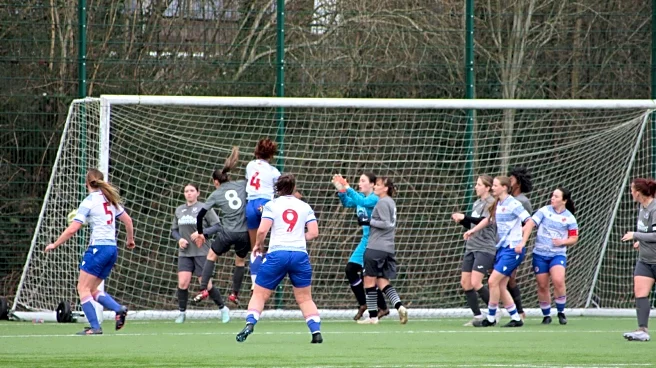Rapid Read • 7 min read
Caffeine withdrawal headaches are a common issue for individuals who abruptly stop consuming caffeine after regular use. According to Dr. Nolan Pearson, a neurologist at Cedars-Sinai Medical Center, these headaches can mimic migraine symptoms, presenting as pulsing and throbbing pain. The International Classification of Headache Disorders notes that withdrawal headaches typically occur after consuming more than 200 milligrams of caffeine daily for over two weeks and then stopping suddenly. The headaches usually manifest within 24 hours of cessation and can last up to a week. The exact cause of the pain is not fully understood, but it is believed to be linked to the dilation of blood vessels and the buildup of adenosine, a neurotransmitter that caffeine blocks. Experts recommend gradually reducing caffeine intake to mitigate withdrawal symptoms.
AD
Understanding caffeine withdrawal is crucial as caffeine is widely consumed in the U.S., with many relying on it for daily energy boosts. The withdrawal symptoms can significantly impact individuals' daily functioning, especially in settings where caffeine consumption is suddenly halted, such as hospitals or during fasting periods. The insights provided by neurologists can help individuals manage their caffeine consumption more effectively, reducing the risk of withdrawal headaches. This knowledge is particularly beneficial for healthcare providers who can better prepare patients for procedures requiring caffeine abstinence. Additionally, it highlights the importance of moderation in caffeine consumption to avoid dependency and withdrawal issues.
For those looking to reduce caffeine intake, experts suggest a gradual reduction strategy, decreasing consumption by 25 to 50 milligrams per day. This approach can help minimize withdrawal symptoms and make the transition smoother. Healthcare providers may also consider advising patients on caffeine reduction strategies before medical procedures. Further research into the mechanisms of caffeine withdrawal could lead to more effective management strategies and treatments for those affected by severe withdrawal symptoms.
AD
More Stories You Might Enjoy












